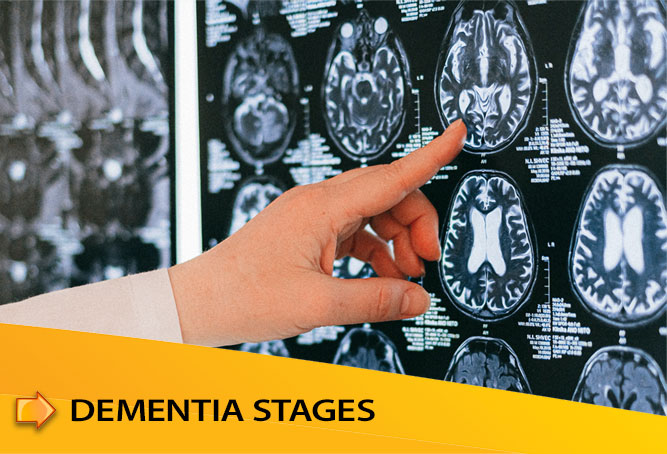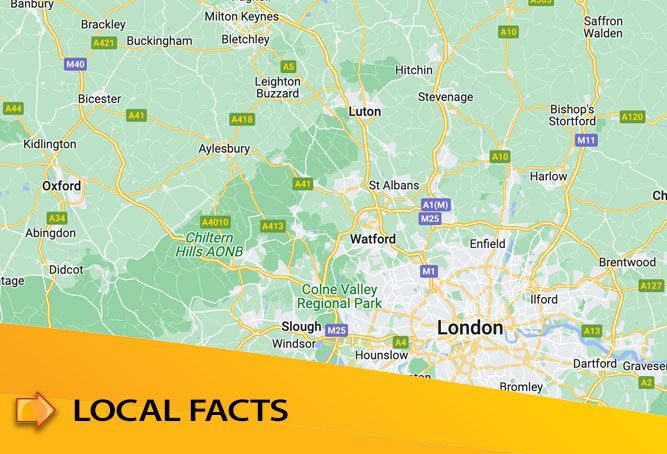



Eric Knowles – TV personality and Antiquarian -
“Both of my parents succumbed to Dementia so I know that so many family carers are left alone isolated and desperate for respite. Becoming a patron for this wonderful charity was one the best decisions I have taken.”.

Scott Mitchell- Actors agent was married to Barbara Windsor -
“Speaking from experience, family carers are often mentally and physically exhausted – Delighted to support the work of Dementia Carers Respite.
In Scotland, the family is given one year of paid-for support, it would be brilliant if this was a UK-Wide policy.”
We are dedicated to funding respite at home for dementia family carers
Existing dementia charities provide excellent advice and guidance for people with dementia and family carers, including signposting private providers of respite care. However, the gap is in funding families to access this desperately needed respite. Carers feed back that, if only they had an occasional break from the burden of care, knowing their loved one was being cared for professionally, they could more effectively manage the stresses of being a carer. This is where Dementia Carers' Respite can help.
A wealth of information exists about dementia on specialised websites, with extensive details for those not familiar with it and those wanting to acquire specialised and in-depth knowledge. Some of the great organisations we referenced include:
Dementia UK | Alzheimer's Society | Alzheimer's Research UK
Our Charity is starting in Buckinghamshire with national ambition to help set up “franchises” with partners. This service provided, must have links with local carer organisations. local referral groups, and arrangements with local councils and local NHS organisation. This is why we believe the best way to operate is on county-by-county basis.
“Franchise Partners” across the country will be able to benefit from the processes, procedures, policies, and arrangements developed locally making it almost a copy and paste situation and learning from our experience .
For the above reasons services provided and dementia statistics in this website are for Buckinghamshire only.
In 2022, dementia was the leading cause of death in England and Wales, with 66,000 deaths, accounting for 11.4% of the total*
There are currently 944,000 people with dementia in the UK - more than ever before - and this number is projected to increase significantly. In Buckinghamshire alone, 9437 people are currently living with dementia.
45% of people with dementia are fully dependent on a family carer or a friend and receive no NHS or Council support and 52% of the UK public know someone who has dementia.
To find out more about the UK dementia statistics, visit https://dementiastatistics.org/about-dementia/maps/
Whilst many people can live their entire lives without developing dementia, it is not unknown for the disease to be diagnosed in people who are still in their 40s or 50s. Although dementia is more common in those over 70, it does not occur exclusively in older people.
Most of us, with our busy lives, occasionally forget where we’ve left the car keys or forget the name of a colleague. These are merely signs of ageing and do not mean that we have dementia. Although dementia symptoms vary widely, it is normally a combination of forgetfulness, repetition in speech and inability to complete multi-step tasks that points towards the disease and should trigger a move to seek a medical diagnosis.
Dementia covers a wide range of specific medical conditions, including Alzheimer’s disease. In Alzheimer’s, abnormal brain changes lead to a decline in thinking skills and cognitive abilities and, when severe, it can impair daily life and independent function. Dementia can also sadly affect behaviour, feelings and relationships.
*Office of National Statistics

Types of Dementia
There are various different types of dementia, each with its own causes. Click the drop down to see more details about some of the main ones.
- Alzheimer's disease. This is where chemical changes in the brain destroy neural connections with increasing effect on the life of the person living with the disease.
- Vascular dementia. This type of dementia is caused by damage to the vessels that supply blood to your brain and is more common in those over 80 years old.
- Lewy body dementia. In this dementia, protein deposits lead to problems with thinking, movement, behaviour, and mood.
- Frontotemporal dementia. This is the result of damage to neurons in the frontal and temporal lobes of the brain. It can result in unusual behaviours, emotional problems, trouble communicating, difficulty with work, or difficulty with walking.
- Mixed dementia. Most commonly this is Alzheimer’s combined with vascular dementia but other combinations are seen.
Alzheimers is, by far, the most commonly diagnosed dementia accounting for 60% or more of cases. It is most common in people over the age of 65 and the risk of Alzheimer's disease and other types of dementia increases with age, affecting an estimated 1 in 14 people over the age of 65 and 1 in every 6 people over the age of 80. But around 1 in every 20 people with Alzheimer's disease are under the age of 65. This is called early-onset Alzheimer's disease. In contrast, frontotemporal dementia (FTD) cases have the lowest incidence in the population at 4.4%. Sufferers tend to be younger - in their 40s, 50s and early 60s.

The Stages of Dementia
Although dementia experts are moving away from classifying the progress through dementia as early, middle and later, these classifications do offer an indication of what stage the dementia has reached.
Early stage
Early-stage dementia affects everyone differently and early symptoms are often relatively mild and not always easy to notice. Many people at this stage stay largely independent and only need assistance with daily living. It is important to focus on what the person can do rather than take over and do things for them. Instead, the carer should do things with the sufferer - for example, help them develop a routine, a reminder list or other prompts.Middle stage
In the middle stage of dementia, symptoms become more noticeable, and the person will need more support in managing daily life. The person may now need frequent reminders and some help to wash and dress (for example, having their clothes laid out for them). Some people with dementia will benefit from a paid carer coming into their home. Or some may move into housing with dementia support on site (known as extra-care housing or assisted living).Later Stage
By this stage, dementia will have a severe impact on most aspects of a person’s life. The person will eventually need full-time care and support with daily living and personal care, such as eating, washing and dressing. This support can be provided by care at home but is more often given in a care or nursing home setting. Symptoms of late-stage dementia are likely to cause the person considerable difficulties by this point, but altered perception and physical problems are often the most noticeable. By the late stage of dementia, the symptoms of all types of dementia become very similar. This stage tends to be the shortest.Dementia being a general term for the impaired ability to remember and to undertake tasks caused by a number of factors, it is difficult to place an individual’s dementia clearly into one of the stages. and to determine years per stage. However, the table below suggests possible timescales.
| Group | Years per stage | Average no. of years | % of total | Comments | |
| 1 | Early Stage | 2-4 years | 3 | 27% | No need for special care |
| 2 | Middle Stage | 2-10 years | 6 | 55% | Need for some care at home or in a care or nursing home |
| 3 | Later Stage | 1-3 years | 2 | 18% | Full time care at home or in a care or nursing home |
| Total | 11 | 100% | |||

The Treatment and Local Facts
There are currently 944,000 people with dementia in the UK - more than ever before - and this number is projected to increase significantly. In Buckinghamshire alone, 9437 people are currently living with dementia.
45% of dementia patients are fully dependent on a family carer or a friend and receive no NHS or Council support and 52% of the UK public know someone who has dementia.
To find out more about the UK dementia statistics, visit https://dementiastatistics.org/about-dementia/maps/
The treatments currently available in the UK for Alzheimer’s disease may slow, but do not stop the progression of the disease and may help manage the symptoms for a time. It’s important for the sufferer, the carer and dementia experts to discuss treatment options available.
Non-drug treatments - cognitive stimulation activities are designed to stimulate thinking skills. They are often group-based, with an emphasis on enjoyment. The activities might include games, group discussions or practical tasks such as baking.
The benefits of cognitive stimulation for people with Alzheimer’s may include improvement in memory, thinking skills and quality of life. People with mild to moderate dementia, including Alzheimer’s, should be given the opportunity to participate in cognitive stimulation programmes.
Most dementia sufferers have some level of drug treatment, either to slow the advance of the disease or to counteract its effects. This is usually agreed by the patient’s own doctor following guidance from a specialist doctor after a visit to a memory clinic.
Research is ongoing and heavily invested in to find better treatment, and some positive signs are on the horizon. Two new drugs, Donanemab and Lecanemab, are currently under clinical testing and appear to significantly slow dementia, particularly when the diagnosis is Alzheimer’s. We can only hope that the early promise is proved correct so that they can be used extensively by the NHS.
For reference - nationally highest ranking (best) is Ranking 650
For reference - nationally lowest ranking (worst) is Ranking 1
For reference - national prevalence of dementia per constituency is 1.33%
Below are Buckinghamshire facts:
Aylesbury: total number of people living with dementia 1,305 | Ranking: 303
Percentage of population living with dementia 1.11% | Ranking: 494
Beaconsfield: total number of people living with dementia 1,717 | Ranking: 58
Percentage of population living with dementia 1.68% | Ranking: 100
Buckingham: total number of people living with dementia 1,460 | Ranking: 175
Percentage of population living with dementia 1.42% | Ranking: 240
Chesham & Amersham: total number of people living with dementia 1,540 | Ranking: 128
Percentage of population living with dementia 1.63% | Ranking: 124
Milton Keynes North: total number of people living with dementia 1,157 | Ranking: 437
Percentage of population living with dementia 0.9% | Ranking : 578
Milton Keynes South: total number of people living with dementia 1,146 | Ranking: 446
Percentage of population with dementia 0.86% | Ranking: 587
Wycombe: total number of people living with dementia 1,112 | Ranking: 479
Percentage of population living with dementia 1% | Ranking: 545
With a national prevalence average of 1.33%, the range in Buckinghamshire constituencies ranges from a low/best of 0.86% in Milton Keynes South to a high/worst of 1.68% in Beaconsfield.






